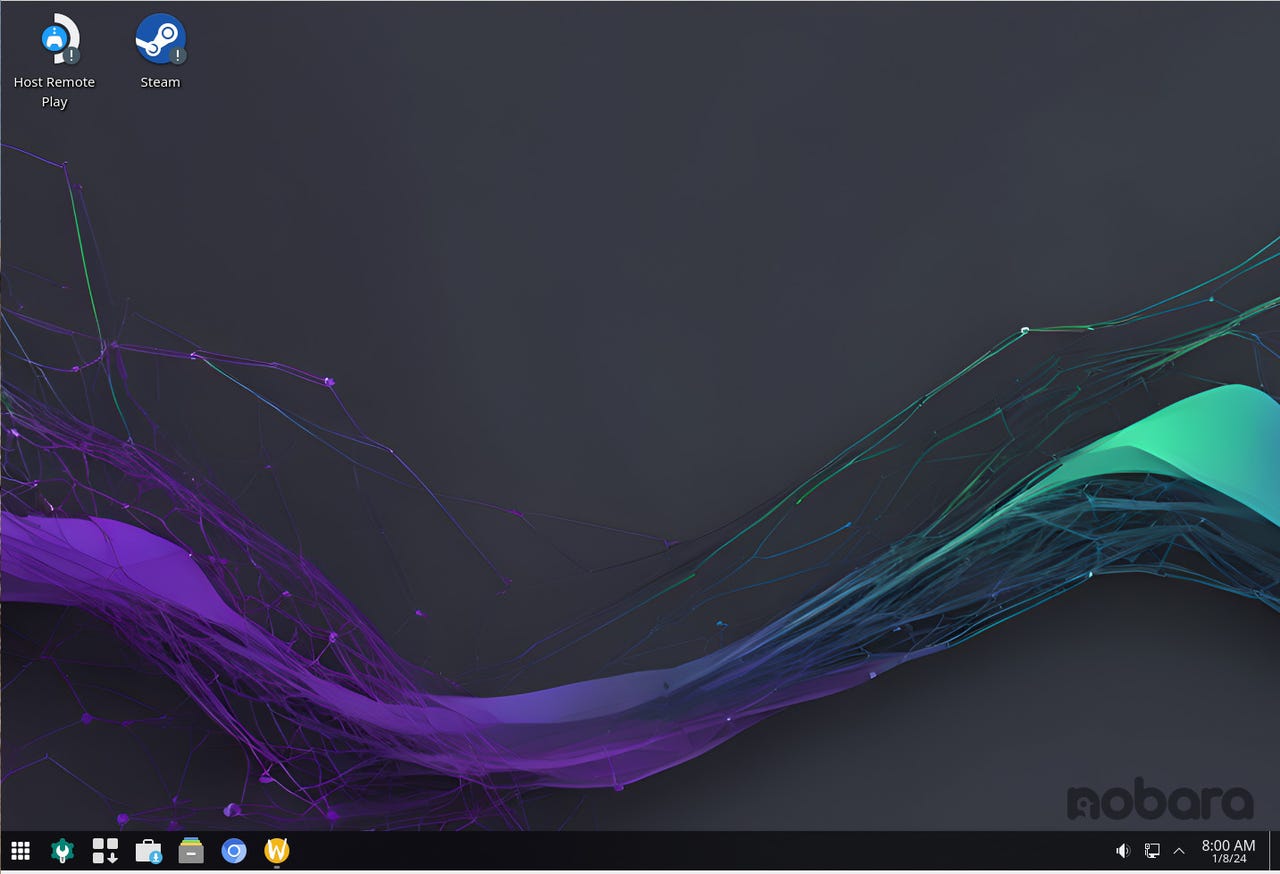Nobara simplifies gaming and streaming on Linux for free - with one caveat

Nobara defaults to a dark theme out of the box, which can be changed in the Appearances section of the Settings app.
ZDNET's key takeaways
- Nobara is available, free of charge, to download and install now.
- Strips away a lot of the usual steps for gaming on Linux and offers a very pleasant and familiar desktop environment.
- Users need to understand the likes of Steam, Wine, and ProtonUp-Qt to get the most out of the experience.
Linux is an operating system that can be used for numerous things. From productivity, development, servers, embedded devices, and everything in between, it's been aiding businesses and enterprises for years. But it's also a rock-solid option for desktop usage as well. But those who like to game and stream/create content, often consider Linux to require too much work to be useful.
I would argue that's an out-of-date opinion because so much of Linux has evolved to the point where most everything is easy to take care of. But I also get that the majority of users want an OS that "just works" out of the box.
Also: How to install Steam on any Ubuntu-based distro so you can play a world of games
For gamers and content streamers/creators, Nobara might be just the ticket. Out of the box, you'll get Steam, GOverlay, Host Remote Play, Lutris, and ProtonUp-Qt installed, as well as Inkscape (a vector graphics editor), LibreOffice, Chromium, and much more. As well, via the Nobara Welcome app, you can easily install Blender, Kdenlive, OBS Studio, and Discord. So, with a few quick post-OS-install clicks, you can have everything you need to start your gaming, streaming, and content creation adventure.
The only thing missing is Audacity, which can be installed from the Discover app.
Installing a few extra pieces of the gaming puzzle is simple, thanks to the Nobara Welcome app.
On top of that, Nobara goes out of the way to include some of the missing pieces to Fedora (on which it is based), such as Wine dependencies, third-party multimedia codecs, and drivers. In fact, according to the Nobara website, "This project aims to fix most of those issues and offer a better gaming, streaming, and content creation experience out of the box. More importantly, we want to be more point-and-click friendly, and avoid the basic user from having to open the terminal."
And that's exactly what Nobara does -- it makes nearly everything about Linux (especially in the gaming/content creation area) easy. And, thanks to KDE Plasma, it uses an interface that all users would be instantly familiar with. The developers don't even attempt to trick KDE Plasma out to look and feel like something it's not. It's KDE Plasma, and that's just fine.
Take, for instance, Steam. On first login, you'll notice an "!" associated with the launcher, telling you that some action must be taken care of. When you double-click that icon, Steam will automatically start downloading updates for you. Once that finishes, you'll be presented with the Steam login screen (hint, you need a Steam account).
Updating Steam happens as soon as you double-click the desktop launcher.
The same holds for Host Remote Play, which makes it possible to stream video, audio, and voice between players while using your own controllers.
One thing to keep in mind is that Nobara is geared mostly toward gamers. Yes, it includes Kdenlive as a linear video editor, but serious video creators are going to want something more along the lines of DaVinci Resolve (which can be installed). Besides, if you're an audio or video creator, your best bet for Linux would be Ubuntu Studio.
Also: Ubuntu Studio is the perfect operating system for creators
For gamers, however, Nobara is the Linux distribution to use. And if Steam isn't your jam, Nobara includes all the Wine tools you'll need to get started. Thanks to Winetricks (to help resolve application/wine issues) and ProtonUp-Qt (to install Wine and Proton-based compatibility tools), you shouldn't have any problems getting your game on.
The caveat
There is, however, one caveat to Nobara. Although the distribution does make everything a simple, point-and-click affair, anyone who opts to dive into this operating system should already be familiar with the tools it offers. You should know Steam if you want to play Steam games. You should know how to use Host Remote Play if you want to stream your games with others. You should know OBS Studio if you want to stream your games to the public. You should know Wine if you plan on running games outside of Steam. In other words, you should already be familiar with gaming on Linux.
Also: PikaOS is a next-gen Linux distribution aimed specifically toward gamers
Simply put, you should seriously consider Nobara if you're a gamer who wants to use the Linux operating system but doesn't want all the usual complexity that comes with the open-source OS. Don't think you can install Nobara and have an easy route to gaming, similar to that of a PS5, XBox, Steamdeck, or Nintendo Switch. There are some complexities and nuances involved. But if you're a serious gamer, you already understand what you're getting into.
